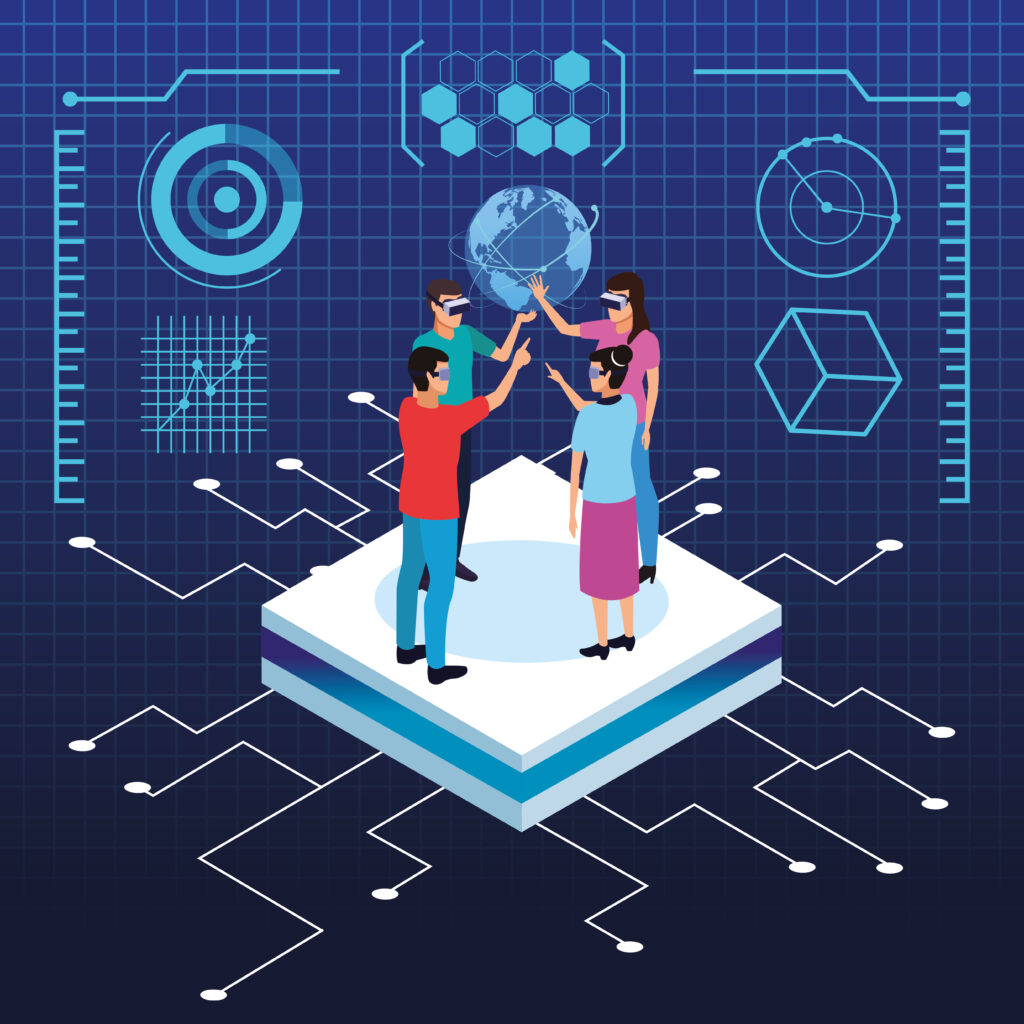ERP in the Metaverse: Virtual Solutions for Real-World Challenges
ERP in the Metaverse: Virtual Solutions for Real-World Challenges

Explore the convergence of ERP systems and the metaverse in our comprehensive guide, “ERP in the Metaverse: Virtual Solutions for Real-World Challenges.” Discover how businesses are leveraging immersive technologies to enhance operations and adapt to the evolving digital landscape.
What is the Metaverse?

The metaverse encompasses a virtual universe where humans interact using extended reality (XR) technologies like augmented reality (AR), virtual reality (VR), and mixed reality (MR). It represents a new way of engaging with technology, essentially a 3D version of the internet parallel to the physical world. Though still in its early stages, it’s seen as the future of online interaction, blending immersive gaming, virtual worlds, and social experiences. Users will have digital avatars to navigate and interact with others, enabling activities ranging from buying virtual land to attending concerts and socializing.
How Are Businesses Using the Metaverse?
The metaverse offers diverse business opportunities across various industries:
| Healthcare | Clinicians utilize enhanced diagnostics and telemedicine for patient care, alongside virtual medical procedure practice. |
| Financial services | The metaverse is a natural fit for finance, integrating blockchain, cryptocurrencies, and digital banking services, exemplified by JP Morgan’s virtual bank branch. |
| Engineering and manufacturing | Extended reality and digital twins streamline product development and factory planning, as seen in BMW and NVIDIA’s virtual factory twin collaboration. |
| Supply chain and distribution | Retailers like Walmart leverage metaverse tech such as AR to optimize inventory management and enhance efficiency across stores. |
| Workforce training | AR and VR facilitate efficient training programs, exemplified by companies like Grundfos and Accenture, accelerating employee onboarding and skill development. |
These applications highlight the metaverse’s potential to enhance enterprise resources, including people, processes, and technology systems. As a vital component of organizational operations, ERP systems are poised to integrate into the metaverse ecosystem.
How should ERP systems adapt for these changes?

Immersive user experiences offer new business avenues, especially in entertainment. Studios and networks may incorporate virtual reality into movies and shows, offering them through subscription services or pay-per-view. Virtual goods, like those by Gucci on platforms such as Roblox, demonstrate the market potential. Companies like Chipotle, Vans, and Nike are also exploring virtual experiences. An incremental approach, starting with augmented reality or 2D online experiences, may be the best strategy before fully embracing immersive 3D experiences.
How can businesses compete in the metaverse?
To thrive in the metaverse, businesses need agile ERP systems that can evolve alongside this dynamic environment. Unlike legacy on-premises solutions, cloud ERP systems offer the flexibility and scalability required to adapt to the rapid changes of the metaverse.
Key features of metaverse – ready ERP systems include:
| Flexibility | Traditional ERP systems updated annually may struggle to keep pace with the metaverse’s rapid evolution. Organizations require the freedom to innovate without constraints, necessitating ERP solutions capable of quickly integrating new functionalities as needed. |
| Scalability and Performance | The metaverse operates at a scale few organizations can match. ERP systems must handle large transaction volumes in real-time without performance issues or delays. |
| Subscription Management | Subscriptions offer recurring revenue opportunities but pose administrative challenges. ERP systems should effectively manage subscription billing at scale and comply with revenue recognition guidelines. |
| Cryptocurrency Support | Cryptocurrency and blockchain technologies are expected to play a significant role in the metaverse. ERP systems must support these technologies to facilitate commerce effectively. |
| Security | With increased complexity and scale comes heightened risk. End-to-end ERP security is crucial for building consumer trust in this unfamiliar technological landscape. |
As the metaverse presents tangible business opportunities, enterprises require highly adaptable and scalable ERP solutions to drive innovation and success in this emerging frontier.
Embracing the Metaverse
In conclusion, the metaverse presents unprecedented opportunities for businesses to innovate and thrive. By embracing agile ERP systems that can adapt to this dynamic environment, organizations can position themselves for success in the virtual realm. With flexibility, scalability, and a focus on security, ERP systems can seamlessly integrate into the metaverse ecosystem, enabling enterprises to capitalize on the limitless possibilities of this emerging frontier.

